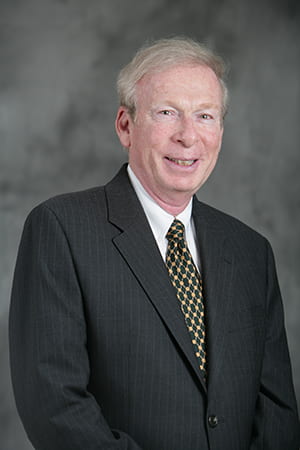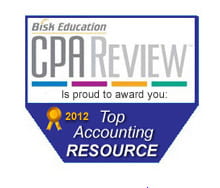Notes From Berkshire Hathaway 2022 Annual Meeting – April 30, 2022
Berkshire Hathaway Annual Meeting
April 30, 2022
(Notes taken by Professor David Kass, Department of Finance, Robert H. Smith School of Business,
University of Maryland)
The Berkshire Hathaway Annual Meeting was held in Omaha for the first time since 2019. Present were Chairman Warren Buffett (91) and the three Vice Chairmen Charlie Munger (98), Greg Abel (60), and Ajit Jain (70).
Warren Buffett mentioned that Berkshire has 3 ½ million shareholder accounts. He then discussed Berkshire’s earnings for the first quarter of 2022. “We prefer to use something called operating earnings. Now, that is after depreciation, and interest and taxes, unlike other companies that prefer to tell you anything but what they earned”. (Referring to EBITDA). Berkshire spent $3.1 – $3.2 billion in share repurchases during the first quarter. It also invested about $40 billion in equities during a three week period from the last week of February through the first two weeks of March. “We only repurchase shares when that is the most attractive thing.” “We haven’t repurchased any shares at all in April.” Berkshire invested $52 billion and sold $10 billion in equities during the first quarter. He also recommended the book, Trillion Dollar Triage, which describes what happened day by day at the Federal Reserve and Treasury starting in February 2020 with the arrival of the coronavirus pandemic and how the economy was saved by Chairman Powell’s quick decisions.
Questions were submitted by shareholders to Becky Quick of CNBC.
Q1. Becky Quick: Why did Berkshire suddenly become more active in its equity investments beginning with the last week of February?
Munger: We found a few things that were more attractive to own than Treasury Bills.
Buffett: He received an email on February 25 from Joe Brandon of Alleghany with his first annual report as CEO for Buffett to read. Buffett then made an appointment for dinner in New York on March 7 with a specific offer in mind ($11 billion) to buy Alleghany. Buffett had been following the company for 60 years. Also, after a meeting with analysts by Occidental, Buffett was impressed by its CEO, Vicki Holub’s discussion of her plans to allocate capital in the near future and decided to add to Berkshire’s earlier investment of $10 billion in March 2020 (preferred stock and warrants). Berkshire was able to buy 14% of Occidental’s stock within two weeks because the stock market had become a gambling parlor with Occidental stock turning over at a rapid rate. The world had changed with oil prices much higher than a year or two before.
Munger: “We have computers with algorithms trading against other computers. We’ve got people that know nothing about stocks being advised by stockbrokers who know even less.
Q2. Audience: Is Berkshire interested in purchasing foreign companies?
Buffett: We would like to buy more foreign companies but we are not as well-known there and are less likely to receive a letter from them.
Munger: Berkshire has spent $60 billion on stock repurchases.
Buffett: Berkshire owned 11.2% of American Express (AXP) in 1998 and as a result of AXP’s stock buybacks, Berkshire now owns 20% without investing another dollar. ‘If you do it at the right price, there is nothing better than buying your own business.”
Munger: It is ridiculous to require the splitting of the Chairman and CEO roles.
Q3. Quick: What is Berkshire doing about Geico underperforming Progressive and BNSF underperforming Union Pacific?
Greg Abel: We are proud of our (BNSF) record and are always trying to improve. He would not trade our operations for theirs.
Ajit Jain: Progressive has been outperforming Geico in terms of margins and growth. The main reason is telematics. Geico should catch up to Progressive over the next year or two. Progressive has been using telematics for 10 – 20 years. Geico is introducing it now.
Buffett: State Farm is the largest auto insurance company and it is a mutual company. It has about $140 billion in net worth. The auto insurance industry should be studied in business schools. State Farm is number one despite not having a profit incentive.
Q4. Audience: How does Warren Buffett time the stock market so well?
Buffett: He does not try to time the market. He missed the market bottom in March 2009 and again in March 2020.
Q5. Quick: What impact would a nuclear attack have on Berkshire Hathaway Insurance? How is Berkshire Energy protecting itself from a cyber attack?
Buffett: We cannot protect against a nuclear attack.
Jain: We cannot estimate our exposure to a nuclear attack.
Abel: We are protecting all of our businesses from cyber attacks. So far we have not had any major events. We also work closely with government.
Buffett: A nuclear attack is a very low probability event.
Munger: But sometimes people behave in a very irrational manner.
Q6. Audience: What is the one stock you would recommend in an inflationary environment?
Buffett: The best investment is to invest in yourself and be the best person at whatever you do.
Q7. Quick: How can I assess Berkshire’s insurance risk after Warren and Ajit are no longer there?
Buffett: Berkshire will maintain its culture.
Munger: Criticizes Robinhood which encouraged gambling and had big commissions, and hidden kickbacks.
LUNCH BREAK
Q8. Audience: What role should CEOs play in discussing political issues?
Buffett: He prefers to not discuss political issues since whatever position he takes, a percentage of the population might get upset and respond by not buying Berkshire products which could lead to layoffs of Berkshire’s employees and a reduction in Berkshire profits hurting shareholders.
Q9. Quick: “Let’s go to a question from David Kass. He writes in, “President Biden’s fiscal 2023 budget request would impose a 20% minimum tax on the unrealized capital gains for households worth at least $100 million. What are your views on this issue?”
Buffett: “I have no point of view that I would want attributed to …”
Munger: My policy is I pay whatever taxes they pass, and I don’t want to engage in lobbying about taxes.
Buffett: Lobbying is really distasteful.
Q10. Audience: How do you apply multi-disciplines to investing and to life?
Munger: It helps to know more than one discipline.
Q11. Quick: In the 1970s you wrote an article “How Inflation Swindles Equity Investors”. Do you still believe that is the case?
Buffett: It also swindles bond investors.
Munger: To protect yourself against inflation, be the best at what you do.
Q12. Audience: With the growing influence of institutional index funds, how can management teams foster the culture that we have here?
Buffett: Many management teams perpetuate lying by setting earnings targets and adjusting reports to achieve them.
Buffett Announcement: He has been buying Activision as a merger arbitrage play. Microsoft has agreed to acquire Activision at $95 per share subject to regulatory approval. The shares are currently at $77 and if the merger blows up it might go to “$40 or something”. Microsoft has the money so that takes one risk out of it. Berkshire has done this before with Monsanto/Bayer and Red Hat/IBM. Berkshire owns 9.5% of Activision and if they go over 10% they will have to file with the SEC. Therefore, this is the explanation if that should occur.
Q13. Quick: Should passive index funds be restricted from voting the shares of their shareholders?
Munger: It is not a good idea to have a few people running these funds have this much voting power.
Buffett: The few people running the funds will act in their own best interest and vote accordingly.
Q14. Audience: Questions about Greg Abel’s financial relationship with Berkshire Hathaway Energy and it large amount of debt.
Buffett: The large amount of debt is required by regulators and it results in a lower cost of capital than equity and lower rates to consumers.
Munger: There is no conflict of interest with the 10% stake of Berkshire Hathaway Energy owned by Greg Abel.
Q15. Quick: Question for Charlie on the desirability of investing in China.
Munger: He was able to purchase shares at low prices in China but understands the risks are greater now.
Q16. Audience: Question about Berkshire’s insurance float.
Buffett: Berkshire’s insurance float became a lot more profitable after Ajit arrived. Buffett views Berkshire as his “painting”.
Q17. Quick: How does the inflation of today compare to recent inflationary periods and what can businesses do?
Buffett: Jay Powell did what he had to do and money was sent out to every business and individual. We then had too much money chasing too few goods.
Q18. Audience: What changes would you make to the GAAP rules?
Buffett: GAAP can result in many different outcomes that are legal. Salomon used to use a “plug” so that assets would equal liabilities.
Q19. Quick: Have you changed your views on bitcoin?
Buffett: He would not buy all of the bitcoin in the world for $25. He would then have to find someone to sell it to for at least $25. Apartment buildings produce rent, farm land produces food, but bitcoin produces nothing. It is not currency.
Munger: I try to avoid things that are stupid and evil and make me look bad as compared to others, bitcoin does all three. It is stupid because it is probably going to zero. It is evil because it undermines the Federal Reserve system and their control over money supply, and it makes us look bad relative to China that banned it.
Q20. Audience: Advice for a freshman at Rutgers University?
Buffett: Find out what you love doing. Work for whomever you admire most.
Munger: Warren and Charlie did not succeed at anything they were not interested in. Neither did they succeed at what was hard and they did not have the aptitude for. They both chose to work for themselves.
Q21. Quick: Question about global oil production.
Munger: We should keep our oil in oil reserves and purchase oil from the Arabs. I wish the rest of the world worked as well as the oil companies.
Buffett: If we were to change over in three or five years no one knows how it would work out. The odds are low that it would work out well in my opinion.
Q22 Audience: Does Berkshire buy back more of its shares when it is trading at a larger discount from intrinsic value?
Buffett: He would rather buy businesses than his own shares. He will buy back more shares when they are offered to him and at an attractive price so it would benefit the shareholders.
Q23. Quick: Will Greg Abel, in the future, be able to make quick decisions without board approval similar to what Warren has done?
Buffett: There will probably be some restrictions placed on Greg by the Board since he is new to the CEO role. The Board of Directors of Berkshire do not have directors insurance. They are probably the only company on the NYSE without director insurance. On another subject, board members who receive $300,000 a year are not independent.
Meeting Adjourned




1 Response
[…] April 30, 2022. (Notes taken by Professor David Kass, Department of Finance, Robert H. Smith School … […]